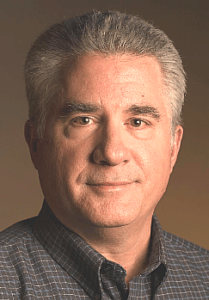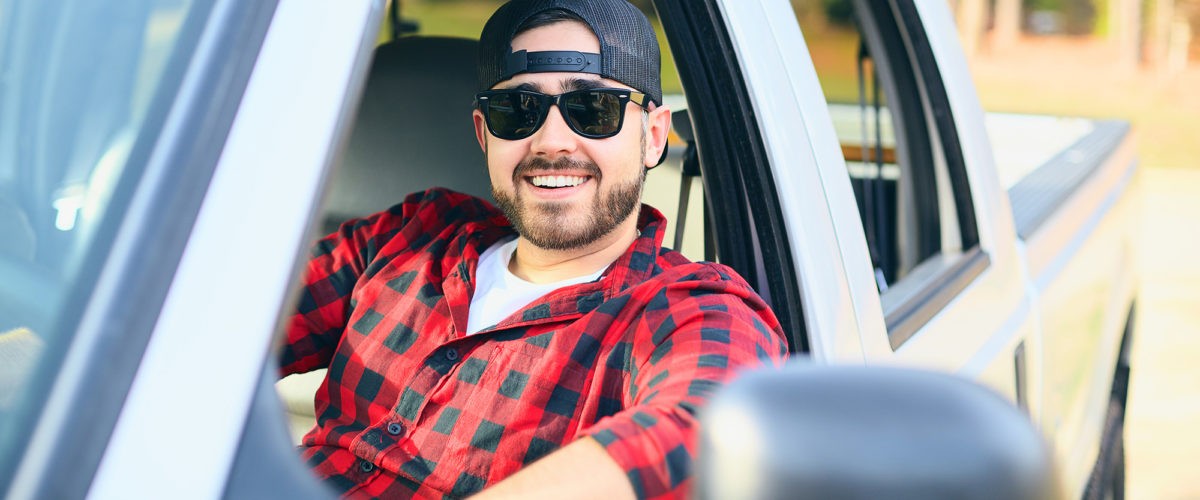White guys sporting ball caps and goatees, driving loud pickup trucks.
You know the type. They’re everywhere, especially in the South. They get on my nerves, bigtime. Lately, I’ve found myself assuming they’re all obnoxious Trumpers — and probably racist neo-Nazis to boot.
Talk about profiling.
“Earl,” the guy who lives across the street from me, has the loudest pickup I’ve ever heard. It blasts me out of my chair in the morning when he cranks it up. His big ol’ Harley is even louder. He likes to crank up that monster on a regular basis, too.

Erich Bridges
Earl also happens to be the kindest, friendliest person in the neighborhood. Sitting on his front porch, he smiles and greets everybody who passes by. A lot of folks stop and talk for a while. He constantly invites neighbors, including me, over to visit and eat the juicy steaks and chops he cooks out on his gas grill. If I don’t cross the street, he delivers delicious meals to my door (food is one of my love languages, by the way). A few weeks ago, Earl insisted on helping me lift my lawnmower into my trunk — even though he recently had suffered several injuries in an accident and had to hobble across the street.
As for why he fires up that loud truck every morning, Earl faithfully visits his aging father daily, even though his father has become depressed and sometimes verbally abusive in his old age. I learned that by actually talking to Earl — and listening to him — during visits he initiated.
When it comes to practical, relational Christianity, Earl is the real deal on my street, not me.
Stereotypes aren’t people
Why are we so quick to stereotype people based on the way they look, talk or dress? Racism, for sure. Also clannishness, small-mindedness, regional and cultural prejudice. My Georgia-born father had to get rid of his deep-South accent when he worked as a salesman north of the Mason-Dixon Line. No one up there would buy anything from someone they assumed to be a dumb hillbilly.
Educated, sophisticated people can be as bigoted as country folk. Sometimes more so.
“Educated, sophisticated people can be as bigoted as country folk. Sometimes more so.”
Putting people into stereotypical boxes starts early. When I was in high school back in the Paleolithic Age, we divided ourselves into jocks, cheerleaders, “brains,” nerds, freaks and outcasts. I’m not sure what terms kids use today, but I’m sure they have them. Adults aren’t all that different; we have the white-collar box, the blue-collar box, urban elites, techies, hipsters, seniors, Boomers, Millennials, conservatives, progressives. These niches are useful in some ways, but people are individuals, not categories.
Travel, technology and globalization have helped us better experience the true diversity of humanity across cultures. But they’ve also created new problems as we contend with endless waves of information. Our brains have become “pattern-recognition machines,” says journalist Kate Murphy, author of You’re Not Listening: What You’re Missing and Why It Matters. Too many words, too many images, too much data flood our minds. So we stop listening, or listen only to what we want to hear. It affects even close relationships.
“Sometimes people keep conversation light with friends and family because they assume they already know what’s going on, but also, they may be afraid of what they might learn,” Murphy writes. “But what is love if not a willingness to listen and be a part of another person’s evolving story? A lack of listening is a primary contributor to feelings of loneliness. In a 2018 survey of 20,000 Americans, almost half said they did not have meaningful in-person social interactions, such as having an extended conversation with a friend, on a daily basis. About the same proportion said they often felt isolated and left out, even when others were around.”
The isolation pandemic
Social isolation and alienation, besides the individual suffering they cause, now threaten our existence as a society. More and more of us don’t listen to each other, don’t talk to each other. Instead, we avoid each other, fear each other, hate each other. The trend transcends politics. It infects wide social and regional groups that refuse to associate with one another in any meaningful way.
If you don’t think you’re susceptible to this infection, take a long, hard look at your interaction with other human beings and the assumptions you make about them.
I thought about this recently as I volunteered at my urban church’s food pantry/clothes closet/shower ministry. I’ve only helped out a few times so far, but I’ve already caught myself mentally putting people who walk through the door into categories — drifter, druggie, headcase and so on.
“I’ve already caught myself mentally putting people who walk through the door into categories — drifter, druggie, headcase and so on.”
Last week, however, I struck up a conversation with “Jim,” one of the regulars. He’s an older man, disheveled looking, with long, stringy hair. He wraps a rubber band around his salt-and-pepper gray beard. He usually stays the whole time the seating area is open, collects his food and takes a shower. He gets ornery when someone doesn’t follow the pantry rules (including volunteers), so I gave him a wide berth until our little talk. He was in a good mood that day.
Turns out, Jim has ridden his 10-speed bike (which he carefully locks to the stair railing outside the church) all the way to Florida and back to Virginia — twice. Of the states in between, he likes Georgia the best. “People are so nice there,” he said. He told me that when he was a kid, he used to tag along with his dad, who drove an 18-wheel tractor trailer from Chicago down south to pick up giant loads of watermelons. Together, they’d sell the produce to supermarkets along the roads leading back home.
Jim studied theater and stage lighting as a young man, and worked at the Barter Theater in Virginia, one of the great American regional playhouses. Barter productions over the years have featured Gregory Peck, Ernest Borgnine, Patricia Neal, Ned Beatty and many other actors who went on to fame and fortune.
I’m not sure how Jim became homeless — or if he’s homeless at all. I didn’t ask. As he was unlocking his bike to leave, he gave me tips on taking classes at Virginia Commonwealth University in Richmond. If you’re over 60, he said, classes are free if you fill out the paperwork. He’s taken courses in Shakespeare and the history of film. The Shakespeare professor was tough, he warned.
That’s Jim, the guy I assumed was a burned-out case. I hope we’ll get to know each other better in the weeks to come.
Don’t assume. Listen.
Erich Bridges, a Baptist journalist for more than 40 years, retired in 2016 as global correspondent for the Southern Baptist Convention’s International Mission Board. He lives in Richmond, Va.
Related articles:
In a divided society, maybe we should shut up and listen | Opinion by Jason Coker
People I don’t need to listen to | Opinion by Brett Younger
Listen more, speak less, dispel anger with love | Opinion by Rob Sellers


